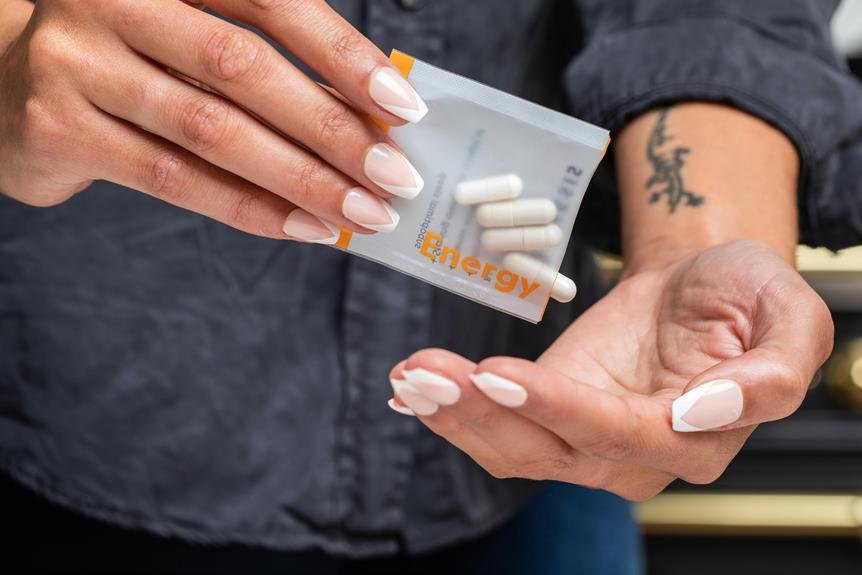
When it comes to optimizing the absorption of your vitamin supplements, timing plays a crucial role in ensuring maximum benefits for your health. The question of when to take your vitamins is not a one-size-fits-all answer. Different vitamins have varying absorption rates and requirements, which can impact their effectiveness in your body. By understanding the nuances of when and how to best consume specific vitamins, you can harness their full potential to support your overall well-being. So, let's unravel the mystery behind the best time to take vitamin supplements for maximum absorption and unlock the key to a healthier you.
Factors Affecting Absorption
When taking vitamin supplements, the timing of consumption plays a crucial role in their absorption by your body. Factors such as whether you take them with food or on an empty stomach can significantly impact how well your body absorbs the vitamins. For example, fat-soluble vitamins like Vitamin D are better absorbed when consumed with a meal containing fats. On the other hand, water-soluble vitamins like Vitamin C are generally better absorbed on an empty stomach.
Additionally, certain vitamins can interact with each other, affecting their absorption rates. For instance, calcium can interfere with the absorption of iron if taken together. It's recommended to space out the intake of these vitamins throughout the day to maximize absorption.
Moreover, some medications or health conditions may also affect how your body absorbs vitamins. Consulting with a healthcare professional can help you determine the best timing for taking your specific vitamin supplements to ensure optimal absorption and effectiveness.
Morning Vs. Evening Intake
Wondering whether you should take your vitamin supplements in the morning or evening for optimal absorption and effectiveness? The timing of when you take your vitamins can impact how well your body absorbs and utilizes them. While there isn't a one-size-fits-all answer, some vitamins are better absorbed in the morning, while others might be more beneficial when taken in the evening.
For instance, water-soluble vitamins like Vitamin C and B vitamins are generally recommended to be taken in the morning. These vitamins can provide you with an energy boost to kickstart your day. On the other hand, fat-soluble vitamins such as Vitamins A, D, E, and K are better absorbed when taken with food that contains fats, making them more suitable for evening intake.
Ultimately, the best time to take your vitamin supplements depends on your personal schedule, lifestyle, and the type of vitamins you're taking. It's essential to be consistent with your intake, whether you choose morning or evening, to maximize the benefits of your supplements.
Interactions With Food
To maximize the effectiveness of your vitamin supplements, consider how they interact with the food you consume. Some vitamins are fat-soluble, like vitamins A, D, E, and K, meaning they're better absorbed when taken with a meal that contains fats. Consuming these vitamins with food can enhance their absorption as the fats help facilitate the absorption process.
On the other hand, water-soluble vitamins such as vitamin C and the B vitamins absorb well on an empty stomach. Taking these vitamins with food, especially with high-fiber foods, may decrease their absorption rate.
Additionally, certain foods can interact with specific vitamins, either enhancing or inhibiting their absorption. For example, calcium can inhibit the absorption of iron, so it's advisable not to take these two together. Conversely, vitamin C can enhance the absorption of non-heme iron found in plant-based foods. Being mindful of these interactions can help you get the most out of your vitamin supplements and ensure optimal absorption for better overall health.
Timing for Specific Vitamins
Consider adjusting the timing of specific vitamins in your daily routine to optimize their absorption and effectiveness.
Vitamin D is best taken in the morning as it helps regulate your sleep-wake cycle.
Vitamin C is beneficial when taken with meals to enhance iron absorption.
Vitamin B12 is recommended in the morning to boost energy levels throughout the day.
Vitamin A should be taken in the evening to support vision health.
Vitamin E is ideal when taken with a meal containing healthy fats to improve absorption.
Calcium and magnesium are best taken before bed to aid in muscle relaxation and promote better sleep.
Iron supplements are most effective when taken with vitamin C to increase absorption.




